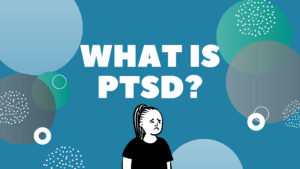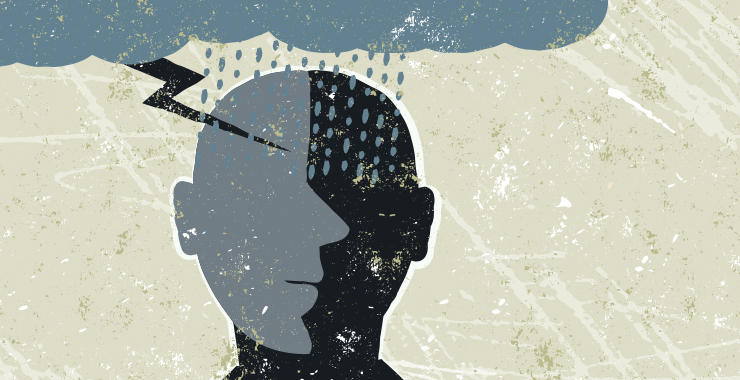If you’re one of the many people who have experienced trauma in your life, you know how devastating it can be. Post-traumatic stress disorder (PTSD) is a condition that affects millions of people worldwide and can leave individuals feeling helpless, scared, and alone. Fortunately, there are effective psychological treatments available to help those suffering from PTSD regain control of their lives. In this blog post, we’ll explore some of the most popular psychological treatments for PTSD and provide valuable information on how they work and what benefits they offer.
Contents
What Is PTSD?

PTSD is a mental health disorder caused by experiencing or witnessing a traumatic event. Symptoms of PTSD can include intrusive thoughts, nightmares, flashbacks, hyperarousal, avoidance behavior, and difficulty concentrating. It is normal to experience some of these symptoms after experiencing a traumatic event but if they persist for more than one month, it may be an indication that you have PTSD.
Treating PTSD often requires a combination of coping skills, talk therapy, and medications. Coping skills can include relaxation techniques such as deep breathing, progressive muscle relaxation, or guided imagery. Talk therapies focus on helping individuals process the trauma and develop strategies to cope with intrusive thoughts and emotions. Medications such as selective serotonin reuptake inhibitors (SSRIs) and mood stabilizers may be used to reduce symptoms such as insomnia or anxiety.
Psychological Treatments for PTSD

Psychological treatments for PTSD can vary depending on the individual and the severity of their symptoms. However, there are a few common types of treatment that are often used to help people with PTSD. The work of these treatments is to help the individual better understand and manage their symptoms.
Sometimes people choose this type of treatment because it provides a safe, structured environment that encourages healthy coping strategies for dealing with trauma and its after-effects.
Types of Psychological Treatments for PTSD

There are many types of psychological treatments for PTSD, including:
Cognitive Behavioral Therapy (CBT)
CBT is a type of talk therapy that works to help individuals identify and change negative thought patterns which can be associated with trauma. It involves helping people recognize the connection between their thoughts, feelings, and behavior, as well as teaching them techniques such as relaxation and problem-solving.
The work of this treatment is to help people with PTSD identify their triggers and develop healthier habits when it comes to responding to them.
Exposure Therapy
Exposure therapy involves gradually exposing an individual to situations that may trigger the symptoms of PTSD. This type of therapy helps individuals become more desensitized to those triggers, ultimately helping them better manage the emotions associated with them.
The work of this treatment is to systematically expose individuals to their triggers in a safe, controlled environment. This helps people re-experience traumatic events from a different perspective and gain mastery over them.
Eye Movement Desensitization and Reprocessing (EMDR)
EMDR is a type of psychotherapy that combines exposure therapy with eye movements or other forms of rhythmic stimulation. The work of this treatment is to help individuals process traumatic memories more adaptively, reducing their power and intensity over time.
The techniques of this therapy make it a particularly good option for people who may not be able to talk about their trauma in detail.
Group Therapy
Group therapy is another type of psychological treatment that can help individuals with PTSD. This type of therapy involves talking to other people who have experienced similar traumas and working together to manage symptoms and develop positive coping strategies.
The work of this treatment is to provide support and encouragement as individuals talk about their experiences with PTSD. It can also help people realize that they are not alone in their struggles and empower them to move forward.
Acceptance and Commitment Therapy (ACT)
Acceptance and Commitment Therapy (ACT) is an evidence-based psychological treatment that helps individuals cope with difficult thoughts and emotions while also living a life that aligns with their values.
The techniques of this technique are based on acceptance, mindfulness, and making positive changes in one’s life. It can be especially helpful for people with PTSD who are struggling to make sense of their experience and take action which is meaningful to them.
Psychodynamic Therapy
Another type of psychological treatment for PTSD is psychodynamic therapy. This type of therapy focuses on exploring the underlying causes of a person’s symptoms and using the insights gained to help them make positive changes in their life.
The work of this treatment is to uncover unconscious conflicts that may be contributing to a person’s experience with PTSD and develop insight into how these conflicts are impacting their behavior. It can also help individuals better understand how past experiences have shaped their current thoughts and feelings, ultimately helping them find more effective ways to cope.
Art Therapy
Art therapy is a type of psychotherapy that uses art-making as a way to express emotions or explore one’s inner world. It can be incredibly beneficial for individuals with PTSD, as it allows them to explore their experiences safely and creatively.
The work of this therapy is to provide an outlet for people to express their feelings without necessarily having to use words. This can be especially helpful for those who may not feel comfortable talking about their trauma or those who are struggling to make sense of it.
Other Therapeutic Approaches
Other therapeutic approaches for managing PTSD include mindfulness-based practices, and dialectical behavior therapy (DBT). Each of these has its own set of techniques that can help individuals better manage their symptoms and lead more fulfilling lives.
The work of these approaches is to teach individuals how to better regulate their emotions and behavior, cope with difficult thoughts or feelings, and develop healthier relationships with others. They can also help individuals gain insight into the causes of their condition, which may ultimately assist them in finding more meaningful ways to manage it.
Benefits of Psychological Treatments for PTSD

Sometimes there are many reasons why people choose to seek psychological treatment for PTSD. These benefits are:
Improves Quality of Life
Psychological treatments for PTSD can provide immense relief from symptoms such as flashbacks, nightmares, and intrusive thoughts. This can allow people to live their life more fully and with less fear or anxiety. These treatments can also help to reduce the feeling of being overwhelmed and confused. This can allow people to make better decisions, manage their emotions more effectively, and increase self-confidence.
Reduces Stress Levels
Psychological treatments for PTSD can help reduce stress levels by providing a safe place for individuals to discuss and process their trauma. In doing so, individuals can gain insight into how to cope with their stressors and be better equipped to handle difficult situations. Furthermore, these treatments can help individuals learn how to regulate their emotions and develop healthier ways of managing them.
Increases Self-Awareness
Psychological treatments for PTSD can also increase self-awareness by providing a space for individuals to explore their thoughts and feelings surrounding their trauma. This can help individuals gain a deeper understanding of themselves and the triggers that cause them distress. Additionally, this increased self-awareness can lead to better decision-making, improved communication skills, and healthier relationships with others.
Helps Build Resilience
Psychological treatments for PTSD can also help individuals build resilience by helping them to identify their strengths and resources. This can provide individuals with the tools they need to manage difficult situations and build a more positive outlook on life. Furthermore, building resilience can help individuals develop healthier coping mechanisms and become more self-reliant.
Effectiveness
Another benefit is that the efficacy of psychological treatments for PTSD has been well-documented in research studies. Cognitive-behavioral therapy (CBT) is the most common type of psychological treatment used to treat PTSD and is considered the gold standard by many experts. Studies have found that CBT can reduce symptoms in as little as 12 sessions, with some individuals experiencing relief even sooner. In addition, many studies have found that psychological treatments are more effective in the long term than medication.
Limitations of Psychological Treatment For PTSD

Other than benefits, there are many limitations to psychological treatment for PTSD.
- One limitation is that it can take a long time for the patient to respond positively to treatments such as cognitive-behavioral therapy (CBT) or prolonged exposure therapy (PE). This is because trauma-focused therapies require patients to confront past traumatic events and memories, something which can be difficult and even overwhelming to do.
- Another limitation is that, as with any form of psychological treatment, there is always the risk of a patient not responding to the treatment or worsening even after multiple sessions. This can be difficult for patients and their families who have invested much time and money in seeking help.
- In addition, psychological treatments may not address all aspects of PTSD such as physical symptoms, like insomnia or hypervigilance. Therefore, it is important to look at other treatments and therapies that can help with these symptoms as well.
- Finally, psychological treatment for PTSD may be expensive and not always covered by health insurance plans. This means that individuals seeking help may have to pay out of pocket for their treatment. It is important to look into what financial options are available, such as sliding scale fees or payment plans.
Conclusion
Psychological treatment for Post-Traumatic Stress Disorder (PTSD) can be an effective and long-lasting solution for individuals suffering from this condition. There can be many different approaches to psychological treatment, including cognitive-behavioral therapy, exposure therapy, and EMDR. It is important to work with a qualified mental health professional to find the right approach or combination of approaches that can best meet an individual’s needs.
Sometimes medication may be used along with psychological treatment to help manage symptoms of PTSD.
For more information, please contact MantraCare. PTSD or Post-Traumatic Stress Disorder is a mental health condition that affects people who have experienced or witnessed a traumatic event. If you have any queries regarding Online PTSD Counseling experienced therapists at MantraCare can help: Book a trial PTSD therapy session


